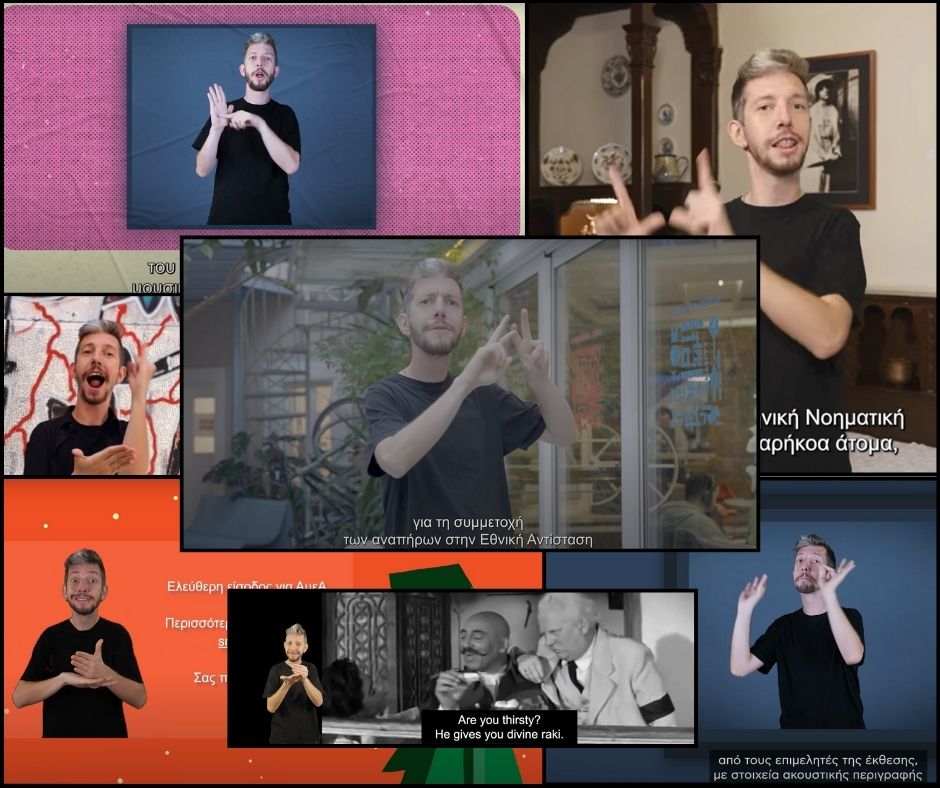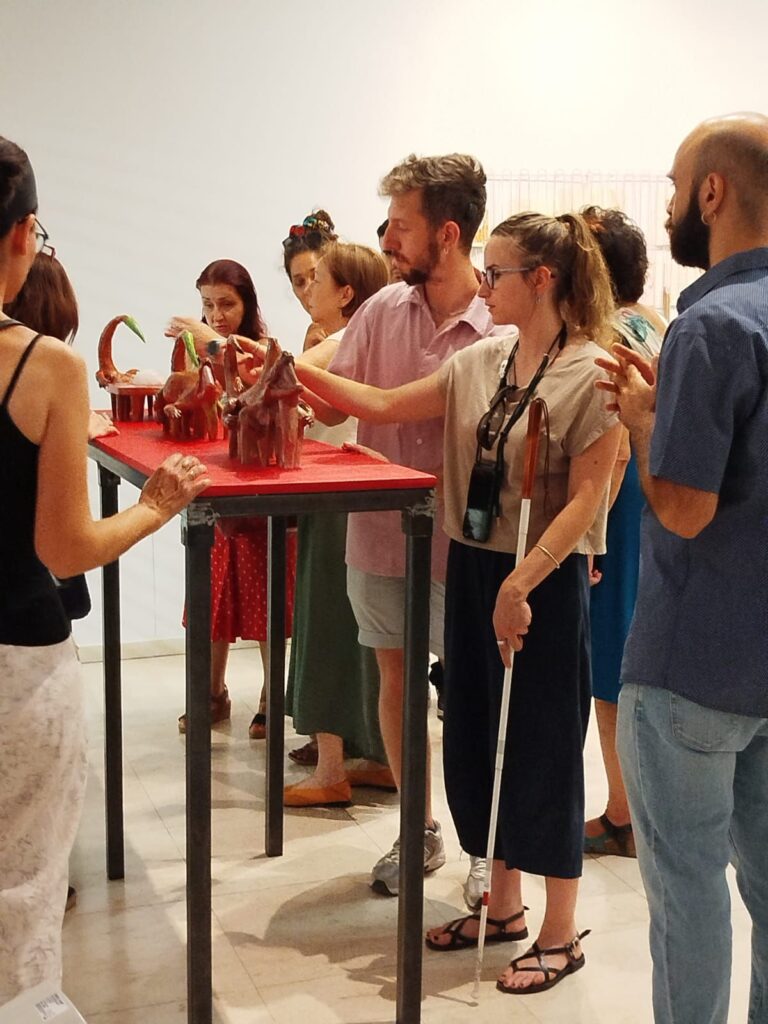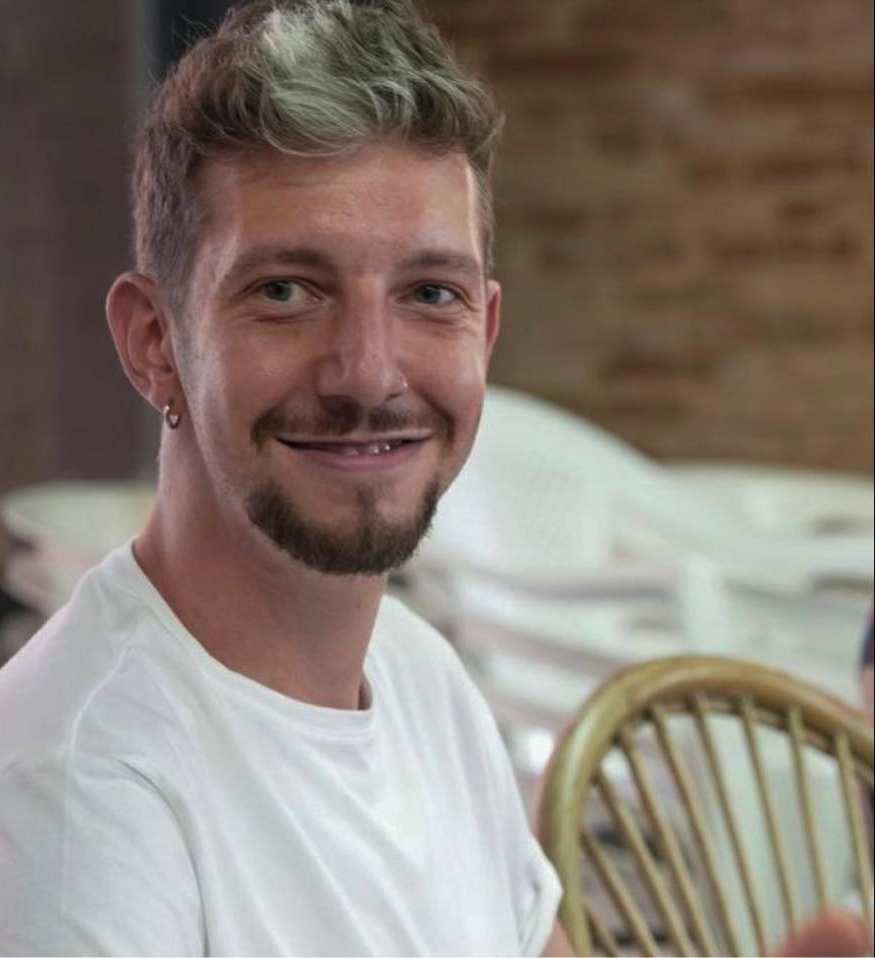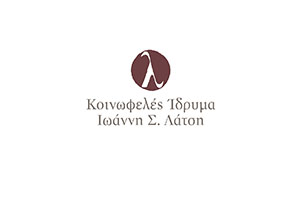A valuable member of liminal
Recognizing the importance of the participation of people with lived experience of disability in the core operation of the organization, liminal enhances its inclusivity by adding a valuable partner: the special education theatrologist and writer, Andreas Plemmenos. This initiative is supported by the Ioannis S. Latsis Public Benefit Foundation.

Andreas, as Liaison Officer, has already managed to become an important and integral part of the organisation, strengthening the organisation’s links with the Deaf and Hard of Hearing community. At the same time, he plays a key role in the production and quality control of Accessibility Services and Educational Programmes for Deaf and Hard of Hearing people.
In the framework of the same project, he participates in the design and implementation of educational material for individuals and institutions from the field of culture and disability, with the aim of promoting accessibility and inclusion in culture.
How is the job market for a deaf person?
Our collaboration with Andreas also shed light on various aspects of the issue of the work integration of a deaf person. Through our communication we were able to gain an in-depth understanding of the specific difficulties that a deaf person faces either in their job search or in their working environment.
While legislation and the Convention on the Rights of Persons with Disabilities (PWD) mandate workplace accessibility and establish quotas for hiring individuals with disabilities in both the public and private sectors, practical measures to ensure true equality of opportunity—free from discrimination—remain unaddressed.1
Among young deaf individuals in Europe, the unemployment rate stands at 45%.2 In Greece, the Federation of Deaf People reports that unemployment among Deaf and Hard-of-Hearing individuals exceeds 30%, rising to over 70% for those aged 25–40.3 Deaf individuals in Greece face significant barriers to information access, education, equal employment opportunities, and effective communication.
As Andreas also notes, it is often observed that people who do not know the deaf community do not have the patience to learn, resulting in increased discrimination and prejudice. Communication barriers create a lack of understanding and support in the workplace and there are not enough awareness campaigns to mitigate these difficulties.

A significant issue is the lack of vocational guidance for deaf individuals, which marginalizes them in their job search and contributes to social isolation.4 Even when they secure employment, they often encounter discrimination linked to audism—a bias that perceives individuals with hearing loss as inferior to those who can hear, reinforcing the notion that hearing and verbal communication are the norm.5 Moreover, there is generally no structured provision for adequately preparing workplaces or training staff to ensure a smooth and inclusive hiring process for employees with hearing impairments.6 As Andreas also points out, another major challenge for deaf individuals in Greece is the difficult choice between employment and retaining their disability allowance. Many are forced to cover disability-related expenses from their salaries, often without any financial support. The Federation of the Deaf of Greece has emphasized the need for legislation ensuring that the deafness-hearing allowance is granted without age restrictions and that interpretation programs in Greek Sign Language receive adequate funding. This would help guarantee universal access to essential services and goods for deaf and hard-of-hearing citizens.7
Andreas in liminal

To ensure Andrew’s integration into the team was both seamless and enjoyable, we established a structured framework for a smooth transition. This began with clearly defining his job responsibilities, aligning them with both the organization’s needs and his personal interests. To foster effective communication within the team, all employees participated in Greek Sign Language courses. Recognizing the numerous benefits of this collaboration, liminal team is now exploring ways to sustain and expand it through future projects and new initiatives.
Employment is one of the most essential tools for the integration of people with disabilities into society. Alongside education, it serves as a key driver of inclusion. However, the absence of comprehensive policies in these areas remains a major factor contributing to their social exclusion.
Andreas shares his thoughts in this video in sign language.
In the video, Andreas says:
liminal provided me with invaluable knowledge to enhance my professional life, particularly in learning how to interact with others in a more inclusive way. The entire experience was thought-provoking—much like a tree growing stronger over time, it nurtured my confidence, deepened my knowledge, and ultimately made my voice more inclusive.
I am deeply grateful to the cultural organization liminal for giving me the opportunity to work with them. This collaboration has created a space for the Deaf and Hard of Hearing community to be heard in the realms of art and culture. I truly hope this partnership continues!
liminal will never be the same and warmly thanks him for his invaluable contribution!
- Ο κήπος της Λυσούς, Η απασχόληση των ατόμων με αναπηρία στην Ελλάδα, Σεπτέμβριος 2022 ↩︎
- (EUDY, SURVEY REPORT, Quality of Life of the Deaf Youth in Europe 2022) ↩︎
- Στη Βουλή το κρίσιμο ζήτημα της ανάγκης στήριξης των κωφών-βαρήκοων ατόμων. Κατάθεση ερώτησης, Οκτώβριος 2023 ↩︎
- Make it work ↩︎
- Understanding Audism, https://verbit.ai/ ↩︎
- Εγχειρίδιο Make it Work, ↩︎
- ΟΜΚΕ, Ζητούμε τη δια βίου χορήγηση του επιδόματος κώφωσης-βαρηκοΐας με νομοθετική ρύθμιση, Απρίλιος 2023 ↩︎

The project Enhancing Inclusivity for liminal is supported by the John S. Latsis Public Benefit Foundation.
